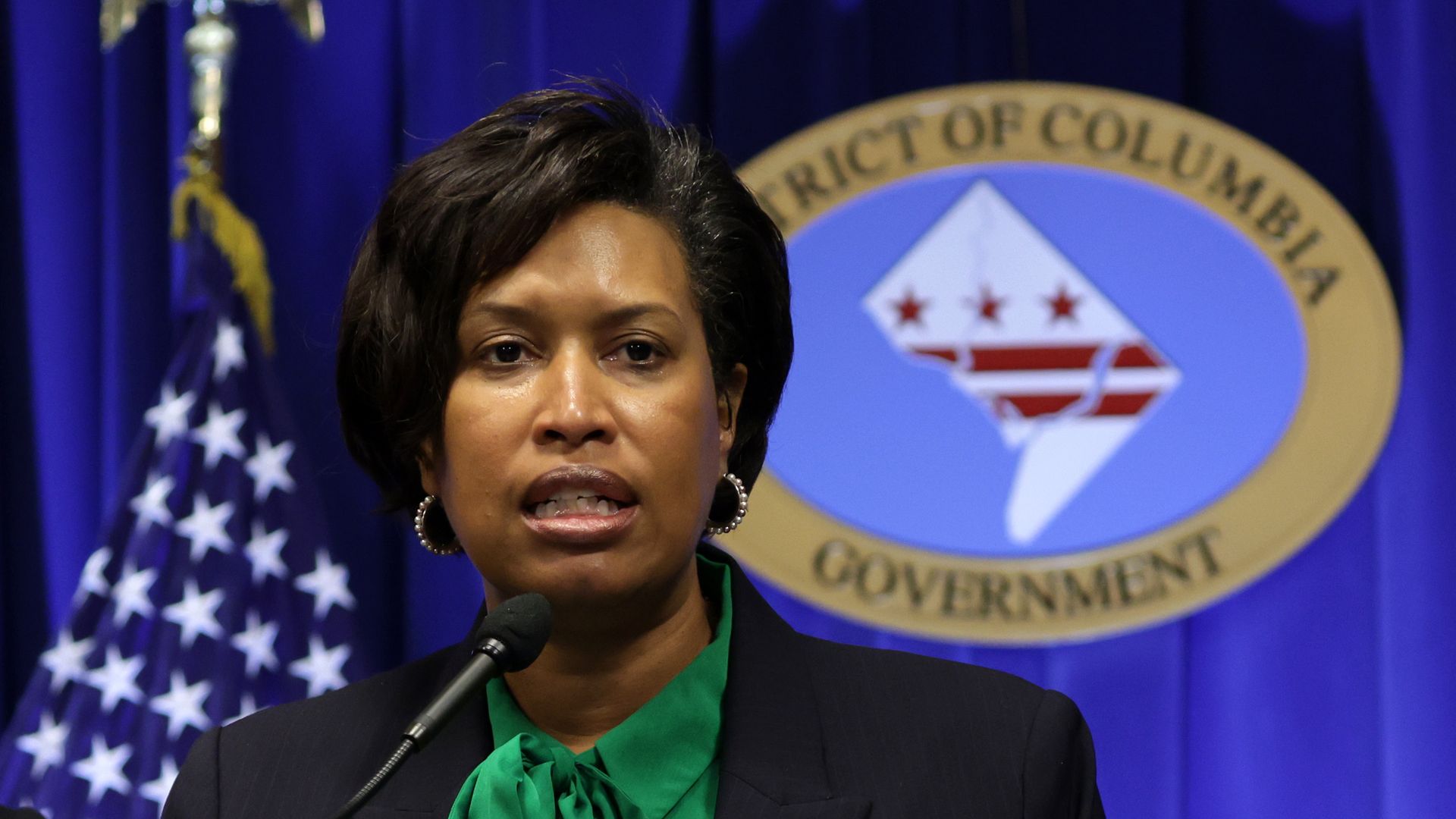The DC Council has appointed a patrolled murderer to the city commission charged with setting guidelines for prison sentences.
On Tuesday, twelve members of the commission that drafts and modifies criminal sentencing guidelines voted to elect convicted murderer Joel Castón to the 17-person board.
Castón will be the first person who has been incarcerated to serve on the commission.
The council’s appointment of a convicted murderer to its leadership comes amid the District’s ongoing crime surge in homicides, carjacking, and robberies.
Caston garnered praise from local leaders during his rehabilitation in prison and acclimation to civilian life, the Washington Times reports.
Last year, D.C. had the fifth-highest per capita murder rate among the nation’s biggest cities,
In January, US Attorney Matthew Graves scolded the council for considering Caston’s appointment. In a Jan. 2 letter, Graves advised members that the paroled killer’s addition to the council would impede the city’s “revolver door” approach to crime and punishment.
Graves cited data underscoring how Superior Court judges closely adhere to the board’s guidelines when handing little to no jail to half of all convicted felons in 2022, Graves told the Council.

The council subsequently delayed its scheduled vote on Jan. 9 for Caston for a month and on Tuesday elected the convict to the sentencing board anyway.
In 1994, at the age of 18, Castón shot and killed 18-year-old Rafiq Washington in a parking lot in Southeast D.C. Castón was sentenced to 35 years to life in prison but was paroled after 27 years in 2021.

“It’s not just a win for me, it’s a win for all returning citizens nationwide,” Castón said. “It sends a resounding message to all returning citizens that you can participate in civic engagement.”
DC Democrat lawmakers, including Chairman Phill Mendelson and Council member Brooke Pinto, celebrated the convicted murderer’s appointment during the legislative meeting electing Caston on Tuesday.
“These perspectives are also very important, as our Sentencing Commission really does play a crucial role in guiding the courts with the sentencing of crimes committed in our communities,” said Ms. Pinto, the Ward 2 Democrat and chair of the Council’s public safety committee.
The appointment was “the right direction for us to move in,” Anita Bond, another lawmaker on the sentencing commission, contends. “We say as a society that giving individuals a second chance is tantamount to being and having the American experience. Well, here we go.
DC’s Democrat Mayor Muriel Bowser acknowledged Caston’s appointment as a liability but sides with Graves noting she doesn’t know “a lot” about the nominee.

“There’s long been a belief that the ideological viewpoints of a lot of previous commissioners have been toward non-accountability, so I would encourage the council to focus on people who want justice in our city for violent crime,” Bowser said. “Not knowing a lot about this nominee, I would tend to associate myself with the U.S. attorney on this one.”
Crime victim advocates blasted the council’s appointment of a paroled murderer on his sentencing board.
Denise Rucker Krepp, a former advisory neighborhood commissioner in Ward 6, warns the council’s decision tramples the efforts by local leaders to dissipate the crime wave.
“It’s yet another example of the council prioritizing violent criminals over murder victims and rape victims,” Krepp told the Washington Times. “It’s not a family member of a murder victim, it’s not a rape survivor. It is either going to be a murderer or rapist, and that pisses me off.”
Caston was the first D.C. resident to be elected while incarcerated. While in prison, he was elected to office in Washington, D.C., by winning a seat on his district’s Advisory Neighborhood Commission.
“He also became a mentor and instructor while he learned several languages and developed a personal finance curriculum called “Currency Catchers,” according to the Georgetown University Prisons and Justice Initiative (PJI). The group provides programs for incarcerated people and aims to end mass incarceration,” Fox News reports.
“It hasn’t been 27 years of waiting to go home, it’s been 27 years preparing myself to never come back to prison again,” Castón said shortly after he was released from prison in January.
“I am going to apply sound judgment based on the facts that are presented to me, without being influenced by any outside parties. It is not fair to put me in a box simply because I was a formerly justice-involved individual. That is not fair.”

Meanwhile, Graves, in tandem with the DC Council, continues to unprecedentedly hand Trump supporters who demonstrated in the nation’s Capitol to ‘Stop the Steal’ on January 6 more sentences as lengthy after Caston served for murder.
On Jan. 4, marking the 3rd anniversary of the Capitol riot, Graves held a press conference touting the Justice Department’s convictions of the four Proud Boys leaders on seditious conspiracy charges and the lengthy sentence handed to both the Proud Boys and the Oath Keepers.
In September, former Proud Boys national chairman Enrique Tarrio was sentenced to 22 years in prison after he was convicted of seditious conspiracy. The government claims Tarrio, his co-defendants, along with Stewart Rhodes conspired with President Trump to execute a terror attack on the US Capitol. In May, Oath Keepers leader Stewart Rhodes received 18 years in prison for conspiring with other members of his militia to oppose the lawful transfer of presidential power.

Most of the statutes of limitations have passed for demonstrators to sue the government or law enforcement agencies for injuries incurred on January 6 while Graves, the federal prosecutor overseeing more than 1,2000 cases connected to the Jan. 6 protest, urges Americans to continue to help investigators identify J6 suspects.
Graves worked as an assistant U.S. attorney within the DOJ’s fraud and public corruption division before being appointed by Joe Biden in 2021 to lead the US Attorney’s Office.
